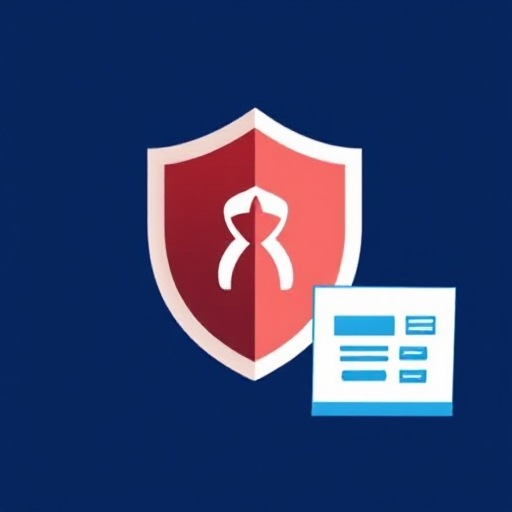The rise of remote work has significantly transformed the landscape of tech careers, offering both opportunities and challenges for professionals and organizations. As remote work becomes increasingly prevalent, understanding its impact is crucial for adapting to this evolving work environment. Here’s a comprehensive look at how remote work affects tech careers and the industry as a whole:
1. Expanded Job Opportunities
Geographic Flexibility:
- Broader Talent Pool: Remote work allows tech professionals to work for companies regardless of their location, breaking down geographic barriers and expanding job opportunities. This flexibility opens up a wider range of positions and companies for job seekers.
- Global Talent Access: Organizations can tap into a global talent pool, allowing them to hire skilled professionals from different regions and benefit from diverse perspectives.
Increased Accessibility:
- Inclusivity: Remote work can provide opportunities for individuals who may face barriers to traditional office environments, such as those with disabilities, caregivers, or individuals in remote or underserved areas.
2. Changes in Work-Life Balance
Flexibility and Autonomy:
- Personal Schedule: Remote work offers greater flexibility in managing work hours and personal responsibilities. Professionals can often design their schedules to better align with their personal lives, leading to improved work-life balance.
- Reduced Commuting: Eliminating daily commutes saves time and reduces stress, contributing to overall well-being and increased productivity.
Challenges to Boundaries:
- Work-Life Separation: Remote work can blur the lines between work and personal life, making it challenging to establish clear boundaries. It requires discipline to separate work tasks from personal activities and avoid burnout.
3. Productivity and Performance
Increased Productivity:
- Fewer Distractions: Many remote workers experience fewer office-related distractions, leading to improved focus and productivity. Customized work environments can also contribute to enhanced performance.
- Flexible Work Environment: The ability to work in a preferred setting, whether at home or in a co-working space, can lead to increased comfort and efficiency.
Challenges in Collaboration:
- Communication Barriers: Remote work can introduce challenges in communication and collaboration, especially for teams that are accustomed to face-to-face interactions. Effective use of collaboration tools and regular virtual meetings are essential to overcoming these barriers.
- Team Cohesion: Building and maintaining team cohesion and a strong company culture can be challenging when team members are dispersed. Virtual team-building activities and regular check-ins can help address this challenge.
4. Skills and Professional Development
Adaptability and Self-Discipline:
- Autonomous Work: Remote work requires strong self-discipline and time management skills. Professionals must be proactive in managing their tasks and staying motivated without direct supervision.
- Tech Savviness: Remote work often necessitates familiarity with various digital tools and platforms for communication, project management, and collaboration. Developing proficiency in these tools is essential for success in a remote environment.
Learning and Growth:
- Online Resources: Remote work has increased the availability and importance of online learning resources and professional development opportunities. Professionals can access webinars, courses, and virtual conferences to continue their education and skill development.
- Mentorship Opportunities: Remote work can facilitate virtual mentorship and networking opportunities, enabling professionals to connect with mentors and peers across different locations.
5. Organizational Changes and Adaptations
Revised Work Policies:
- Remote Work Policies: Organizations have had to adapt their policies and procedures to accommodate remote work. This includes implementing remote work guidelines, communication protocols, and performance evaluation methods.
- Technology Investment: Companies have invested in technology and infrastructure to support remote work, including collaboration tools, cybersecurity measures, and virtual meeting platforms.
Hybrid Work Models:
- Flexible Arrangements: Many organizations are adopting hybrid work models, combining remote and in-office work. This approach provides flexibility while maintaining some level of in-person interaction and collaboration.
- Office Redesign: Companies may redesign office spaces to support hybrid work arrangements, such as creating flexible workstations and meeting areas for occasional in-office days.
6. Career Growth and Advancement
Remote Career Opportunities:
- Career Mobility: Remote work can offer greater career mobility, allowing professionals to pursue opportunities with companies located in different regions or countries.
- Remote Leadership Roles: As remote work becomes more common, there are increasing opportunities for leadership roles in remote teams and organizations. Developing leadership skills in a remote context is essential for career advancement.
Networking and Visibility:
- Virtual Networking: Building a professional network and maintaining visibility in a remote setting requires proactive effort. Engaging in virtual industry events, webinars, and online communities can help maintain connections and enhance career growth.
- Showcasing Achievements: Remote professionals should actively showcase their achievements and contributions to maintain visibility within their organizations and industry.
7. Mental Health and Well-being
Mental Health Considerations:
- Isolation Risks: Remote work can lead to feelings of isolation and loneliness, especially for individuals who miss social interactions and team dynamics. Maintaining social connections and seeking support when needed is important for mental health.
- Work Environment: Creating a dedicated and comfortable workspace at home can contribute to well-being and productivity. Setting boundaries and taking breaks are also important for managing stress and avoiding burnout.
Support Systems:
- Employee Assistance Programs: Organizations can support remote employees by providing access to mental health resources, counseling services, and wellness programs.
- Regular Check-Ins: Managers should conduct regular check-ins with remote team members to provide support, address concerns, and foster a sense of connection.
Conclusion
Remote work has profoundly impacted tech careers by expanding job opportunities, enhancing work-life balance, and reshaping organizational practices. While it offers numerous benefits, such as increased flexibility and reduced commuting, it also presents challenges related to communication, productivity, and work-life boundaries. By understanding these impacts and proactively addressing the associated challenges, tech professionals and organizations can adapt to the evolving remote work landscape and thrive in this new work environment. Embracing the opportunities and addressing the challenges of remote work will contribute to career growth, professional success, and overall well-being in the tech industry.






